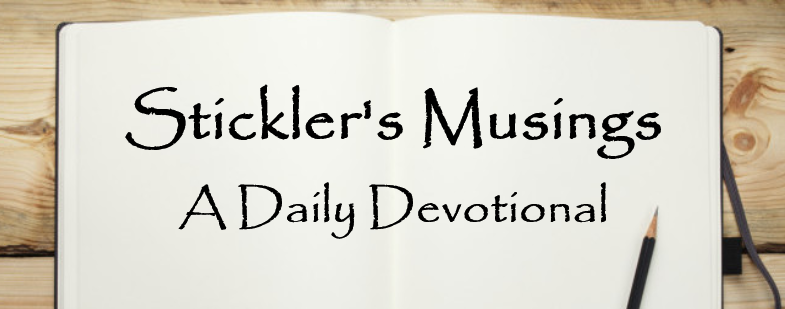Suggested Reading: Psalm 42
I saw one of those family movies recently, you know, the ones where the family is struggling and the teenage daughter lashes out at her mother and screams, "I hate you!" And everybody knows she doesn't mean it. Everybody knows that she is angry and hurt and frustrated and that, even if she means it right this moment, she won't mean it tomorrow. Fortunately, this particular movie was a little more original in the way they resolved the situation than some of the cornier movies I have seen.
I saw one of those family movies recently, you know, the ones where the family is struggling and the teenage daughter lashes out at her mother and screams, "I hate you!" And everybody knows she doesn't mean it. Everybody knows that she is angry and hurt and frustrated and that, even if she means it right this moment, she won't mean it tomorrow. Fortunately, this particular movie was a little more original in the way they resolved the situation than some of the cornier movies I have seen.
While I think most of us understand this concept of feeling a particular way, even when we know it's not true, we sometimes forget to apply that dynamic to our relationship with God. In Psalm 42 and 43 (two psalms that may have been a single psalm at some point in the past), the psalmist seems to express this dynamic of feeling something he knows is untrue. The psalmist remembers his times of joy, going to the house of God and celebrating with God's people, he remembers God's powerful acts of the past, and yet the psalmist feels like God has forgotten him. The psalmist feels as if God has abandoned him and his life is falling into ruin. The psalmist desperately wants to know that God has heard him. In the midst of this internal conflict, the psalmist writes, "Why am I so depressed? Why this turmoil within me? Put your hope in God, for I will still praise Him, My Savior and my God" (Psalm 42:11 and 43:5, HCSB).
Even though his circumstances made it feel like God had abandoned and forgotten him, the psalmist knew that his feelings were not reality. In the midst of his turmoil, the psalmist chose to continue praising God and to call God, "My Savior." God had not yet saved him from his circumstances, his enemies were still pursuing him and things had not yet worked out like he hoped that they would. He was still depressed and writhing in inner turmoil, but the psalmist made a choice to hope in God and to praise God, acknowledging that his feelings, however much they were based on the reality of his circumstances, did not define his reality. The psalmist acknowledged God's faithfulness and God's role as Savior, even when he still felt like he needed saving. The psalmist was willing to acknowledge his depression, knowing that his emotions did not have to define his existence.
There are times for all of us when we feel like the psalmist did, when we feel depressed or that God has forgotten us, when it feels like the world is falling apart and there is no hope. We are allowed to feel that way, and refusing to acknowledge those feelings is unhealthy. But allowing those feelings to overwhelm us and define our reality is also unhealthy. Every moment of every day, including those moments when our feelings of depression and abandonment seem to overwhelm us, we face a choice -- a choice to give in to those feelings and let them define our existence or to acknowledge that our feelings don't tell us everything we need to know -- a choice to feel sorry for ourselves and wallow in our misery or to lift our heads and acknowledge God's faithfulness, even when we don't understand what God is doing.
While it's alright to feel depressed and forgotten, we can't allow our feelings to define us. We must choose to put our emotions in perspective. "Why am I so depressed? Why this turmoil within me? Put your hope in God, for I will still praise Him, My Savior and my God."

No comments:
Post a Comment